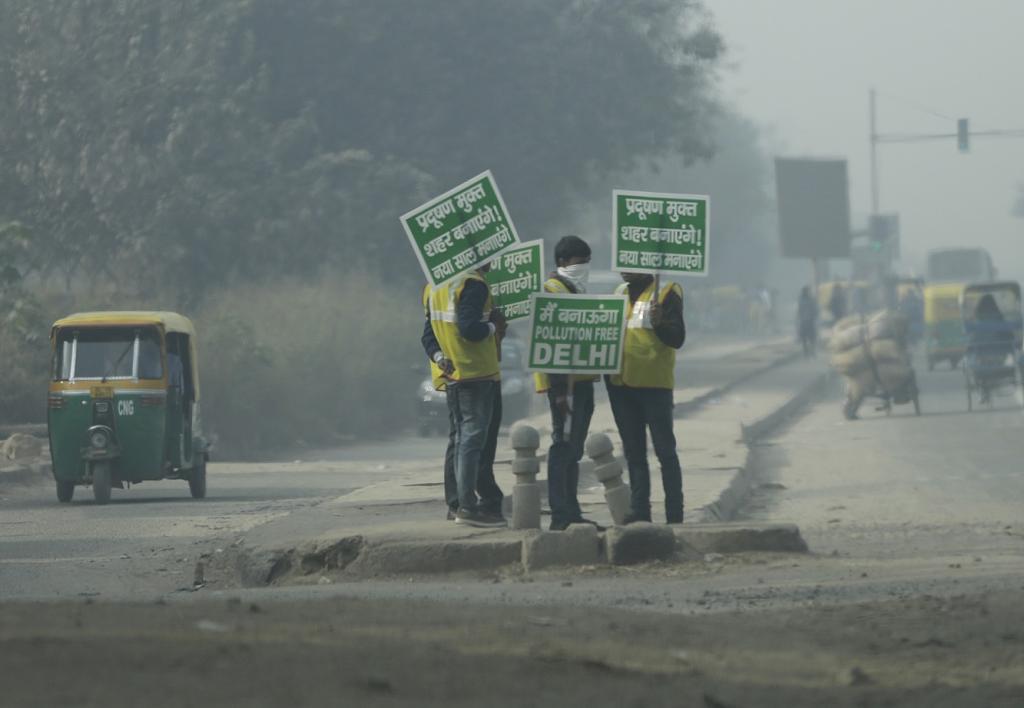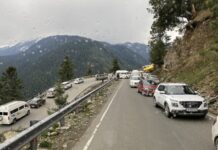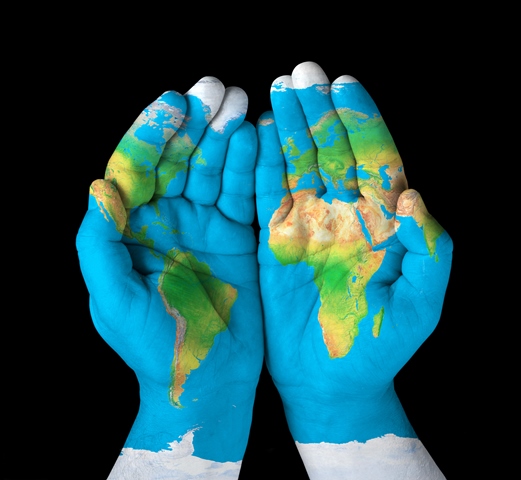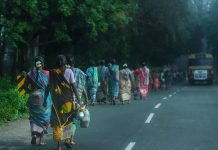If you should ask me what is the greatest thing in the world, the answer would be: its people, its people, its people. (Maori song)
David Attenborough, speaking on behalf of the UN’s “people’s seat” initiative to give ordinary people a voice, issued a stark warning to the world at the United Nations climate talks in Katowice, Poland, “If we don’t take action, the collapse of our civilizations and the extinction of much of the natural world is on the horizon.“
We face immense challenges on our planet – from climate change to the development of artificial intelligence, fresh water accessibility, the growing threat of disease, and crop failure. Extreme hot weather is getting more common and cold weather more rare. Rising sea levels will soon necessitate mass migrations, and coastal cities aren’t doing enough. In the face of these challenges, mindless developmental agenda riding roughshod on politically motivated affirmative actions are alarmingly bereft of protection and sustainability narratives.
The Dignity and Disaster of Modernity
Despair and uncertainty surround us: in the headlines, in our families, and in ourselves. What has led to such poor performance in the public and private realms: that our schools cannot teach creativity that our governments cannot predict disasters that befall us that our health system will not protect us from pandemics, that our politics will remain polarized, that our economy cannot avoid inequality, and that our industry cannot help but pollute the environment.
Perhaps it has its origins in the aspects of pedagogical objectifying, gnostic knowledge and practice reduced to a technical or an intellectual endeavor centered on quantification, intellectual reasoning, and theorizing. As Pinar (2006) points out, “the academic field of education is so very reluctant to abandon social engineering” (p. 109). It also seems as if teachers themselves rely too heavily on the technical-instructional side of education where schools, educational policy, and curricula aim foremost at producing citizens who are ‘productive’ from a societal perspective.
The ‘dignity’ of modernity that heralded the developments and the differentiation in the exceedingly complex domains of knowledge – science, art and morality, set off in its wake postmodernity’s great disaster, the dis-integration of knowing, valuing and doing. Despite the dignity of these domains, through their specialized paths, have become dissociated from one another, raising questions particularly about indigenous ‘ways-of-knowing and ways-of-being’ – essentially an immersion in practice marked by a deep inseparability between knowledge, ethics and action. This inseparability draws on Aristotle and his concept of phronesis in which knowing, doing and valuing are inseparably intertwined and characteristic of Adivasi/indigenous/tribal peoples’ ways of being and having.
Technology and Wisdom
Aristotle distinguished between the kind of deliberations that were appropriate for making things (techne) and those that were appropriate for acting in the human realm. He used the term ‘phronesis’ to mean a practical wisdom that can address a plurality of values. Considering the nature of ‘phronesis’ – the kind of knowledge that is already not separate from ethics and action, we posit Adivasi/indigenous ‘ways-of-knowing and ways-of-being’ as a ‘seamless’ way of being, rather than an artificially induced integration of separate domains of knowledge, ethics and action. We argue for the promotion of such a way of knowing and being that draws on more contemplative directions, which open up creative, ‘unspecialized’ possibilities for feeling, thinking and doing.

The term ‘unspecialized’ is developed in relation to Heidegger’s thought and expresses a fundamentally human way of being that cannot be objectified and as such is a deep source of creativity. This ‘creativity of unspecialization’ best flourished in their own domain, where adivasi/indigenous/tribal peoples had ownership of land and forests, which they protected prudently. Rapacious extractivism developmental agendas demanding dams, industries or other infrastructure, guided by techne has colluded to displace not just the adivasi/indigenous/tribal but our very hope to grow and flourish – intellectually, emotionally, and socially.
The Adivasi/indigenous people
Many people learn about Adivasi/Indigenous communities only through the most controversial and confrontational news. Adivasi/indigenous peoples’ life projects are largely embroiled in turbulent encounters with extractivism, revealing loss and suffering. Adivasi/indigenous ‘ways-of-knowing and ways-of-being’ – ravaged by land rights violations, systemic denial and exclusion of political status, restricted freedoms and denigrated by cultural revitalization programs – continue to be underrepresented and undervalued. The relevance and urgency of nuanced conversations with the time-honored practices of indigenous self-determination and cultural renewal are now stifled by dominant narratives of efficiency, assessment, and productivity.
Mainstream privileged narratives’ scant regard – for the effects of early influences, significant others, challenges and opportunities, human agency, and personal and professional capital of the Adivasi/indigenous – is consistent with the administrative policies that have constituted the ‘tribes’ and their traditions as distinct from Indian society in general and have thus played a major role in their marginalization and deprivation.
The Adivasi/indigenous’ journey to make sense of his/her life and work through different layers of historical, societal, and institutional transformation situated at the intersection of history, culture, and society where the search for personal identity and political consciousness becomes a lifelong project recognizes both – the notion of knowledge is politicized by the dominant culture and the skewed paternalist welfare and development framework of India’s tribal policies.
Despite the aggressive conceptual imperialism and the imposition of exogenous categories of techne, the phronesis of the Adivasi/indigenous/tribal is best demonstrated in the everyday ‘creativity of unspecialization’. Such creativity celebrates the understanding of language that is sensitive to the experiential, moral, emotional and personal dimensions of life.
This fundamental human way of being recognizes and demonstrates how indigenous ecological knowledge contributes to our understanding of how we live in our world (our world views), and in turn, the ways in which humans adapt to climate change and forestall ‘the extinction of much of the natural world.’
Narrative Interpretation: Tacit and Explicit, Analogue and Digital
Swedish scholar, Oscar Öquist (1992), once complained that everything he loves about people appears to have gone awry. Adapting his sentiments we posit, mainstream narratives of dubious progeny championing conceptual imperialism or the imposition of exogenous categories, has rendered everything we love about people in a new narrative interpretation – the tacit and analogue in our complexity, our vagueness, our irrationality, and our insecurity, in other words, our humanness – is being persecuted and demeaned by technology’s distant, logical, explicit, and digital ideals. The values we are (mis)led to cherish today a forced incorporation of expressions of modernity – such as efficiency, assessment, and productivity – leave no room for softer, human qualities such as intuition, emotions, imagination, and creativity. They are denigrated as indigenous, or immature. And yet we instinctively and implicitly know how important these qualities are for human growth and development.
The Road Ahead: Universal Subjectivism
Despite techne’s brash exertion of its myopic techno-rational authority on Viktor Frankl, Mohandas Karamchand Gandhi, Nelson Mandela and a host of others … they lived to tell their tales, the triumph of the unwieldy influence of effulgent phronesis, despite the threats, phoenix like it continues to blossom into a myriad forms – existential therapy, non-violence and forgiveness.
The invitation to Adivasi/indigenous peoples’ ‘ways-of-knowing and ways-of-being’ is the call to self-reflection and change in certain mainstream and often-taken-for granted views of privilege in our way of thinking. We are called upon (usually implicitly, but often explicitly) to think about how we think and to challenge our assumptions. It is a call for all of us to rediscover the indigenous nuggets of hope and wisdom that are buried in us that will make tomorrow better than today. Despite the ravages of the rapacious, the eco-humanist manifesto of Adivasi/indigenous/tribal peoples’ phronesis not only offers much food for thought but, more importantly, is an urgent and inspiring call to action – raising awareness and increasing happiness.
Dutch philosopher Floris van den Berg proposes a new perspective, called universal subjectivism, which can be adopted by anyone regardless of religious or philosophical orientation. It takes into consideration the universal capacity for suffering and, through raising awareness, seeks to diminish that suffering and increase happiness. With consistent and compelling moral reasoning, van den Berg shows that the world can be organized to ensure more pleasure, beauty, justice, happiness, health, freedom, animal welfare, and sustainability.
Anthony Joseph, PhD – NCSL NIEPA – Senior Consultant, Ph.D. in Clinical Psychology and Post Graduate degrees in Education, Commerce and Economics, has a rich experience of serving as teacher and administrator, in many parts of India.














